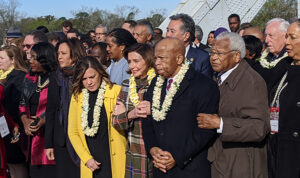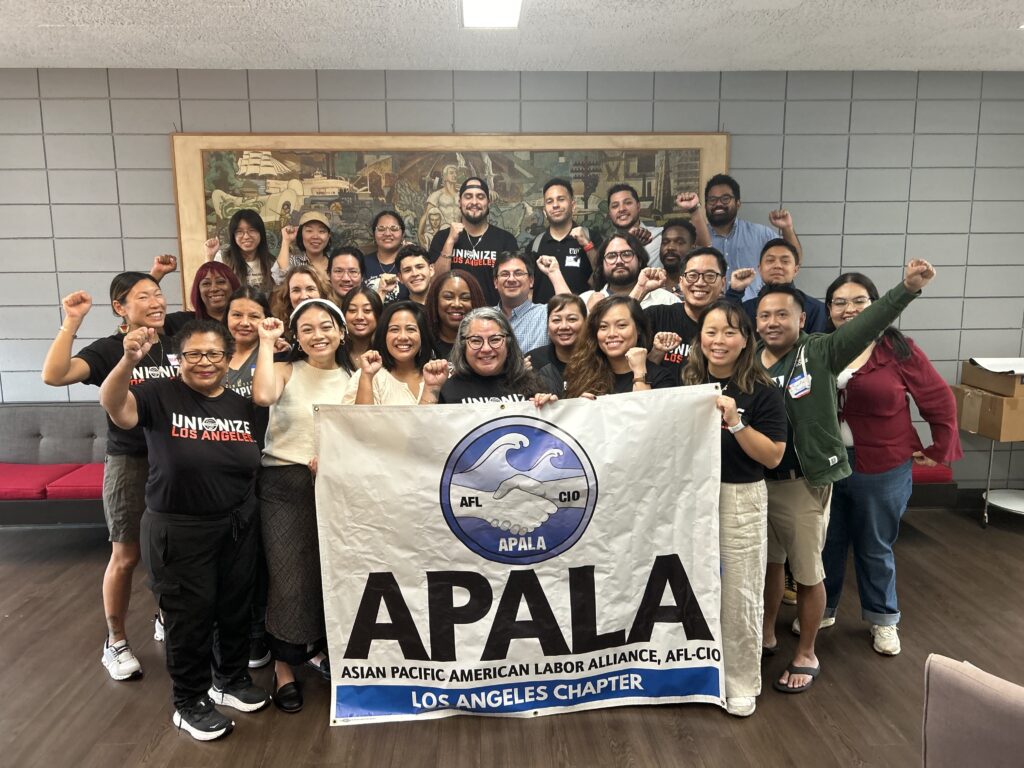
By: Emmelle Israel, Graduate Student Researcher for AARJ
From September 13-15, nearly 40 trainees and training fellows from Southern California unions came together in Los Angeles for the APALA Organizing Institute’s (OI) three-day training, led by the UCLA Labor Center’s Asian American Racial Justice (AARJ) project and the Los Angeles chapter of the Asian Pacific American Labor Alliance (APALA). Los Angeles, home to some of the largest and fastest-growing Asian and Pacific Islander (API) communities in the United States, is a vital hub for ensuring API workers are empowered to advocate for their rights.
The OI has a rich history of training API students, union workers, and community members, with many graduates taking on key leadership roles in the labor movement. This September, AARJ and APALA LA partnered to carry forward this tradition, continuing the UCLA Labor Center’s legacy of fostering meaningful and innovative partnerships that bring the university into the community.
Hosted at the Los Angeles County Federation of Labor, AFL-CIO (LA Fed), the three-day training utilized a comprehensive curriculum developed by the LA Fed’s organizing department. To deepen the experience, AARJ and APALA LA collaborated with LA Fed organizers to create additional training modules that integrated API labor history and encouraged participants to connect their families’ work and immigration stories to the broader legacy of API organizing.
API Leaders Reflect on the APALA Organizing Institute (OI)
Special speakers included API union leaders, who shared how spaces like these organizing institutes fostered their own leadership and will strengthen future union organizers.
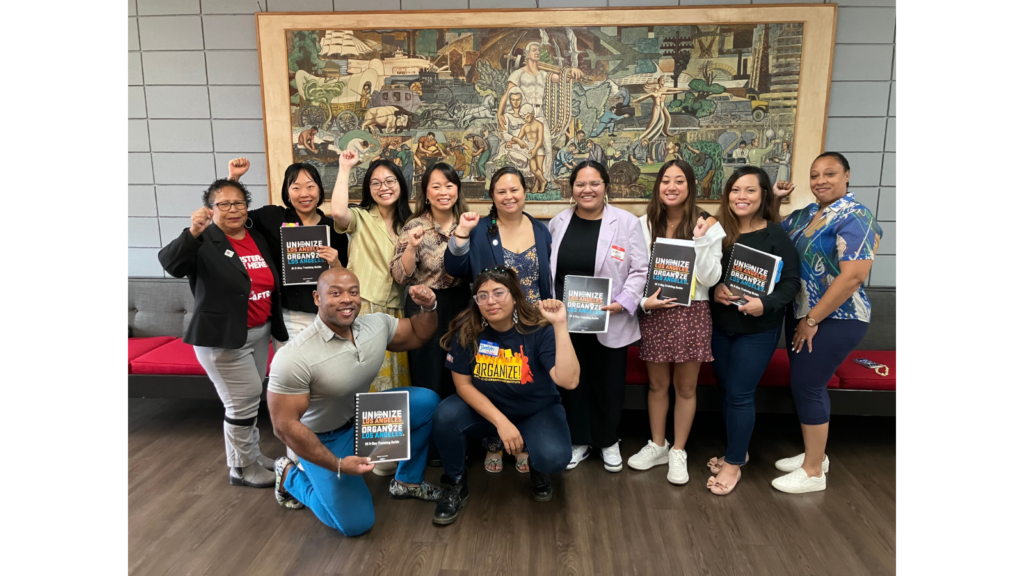
- Ligaya Domingo, President, APALA National: “I started my career in organizing through the Organizing Institute. I went to it in 1995, and I learned all about the labor movement—even though I grew up in the labor movement. All of a sudden, it all just connected when I went to the OI. I love supporting the OI because I know how much it can excite folks to be committed to supporting the labor movement and uplifting workers, particularly API workers.”
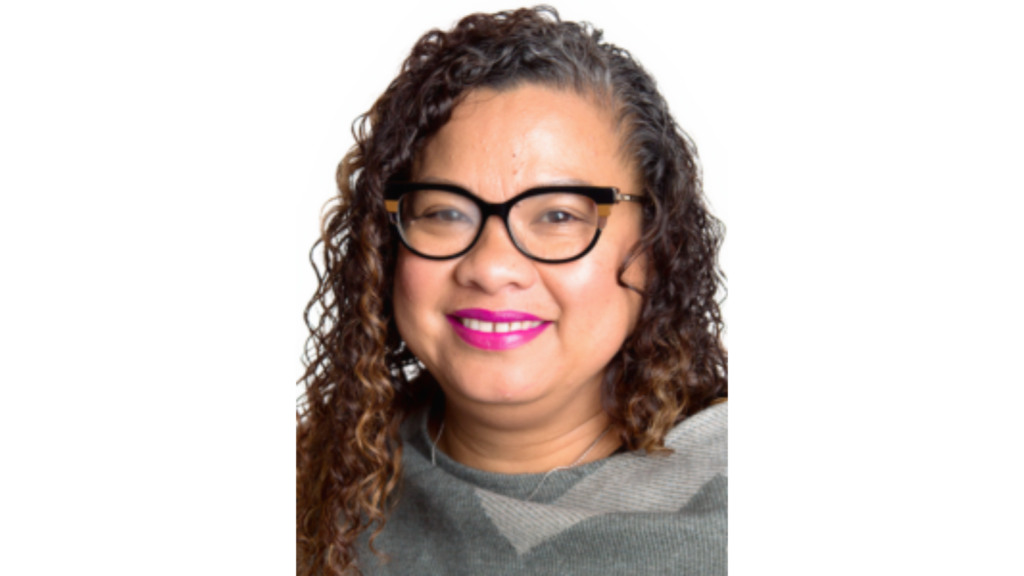
- Johanna Puno Hester, Assistant Executive Director, UDW AFSCME Local 3930: “The APALA OI means the world to me. This is a space for me to feel my entire authentic self. I am here speaking to the new generation of organizers, and I am really excited that we are continuing with this work because we need to continue organizing if we are going to thrive in this country.”
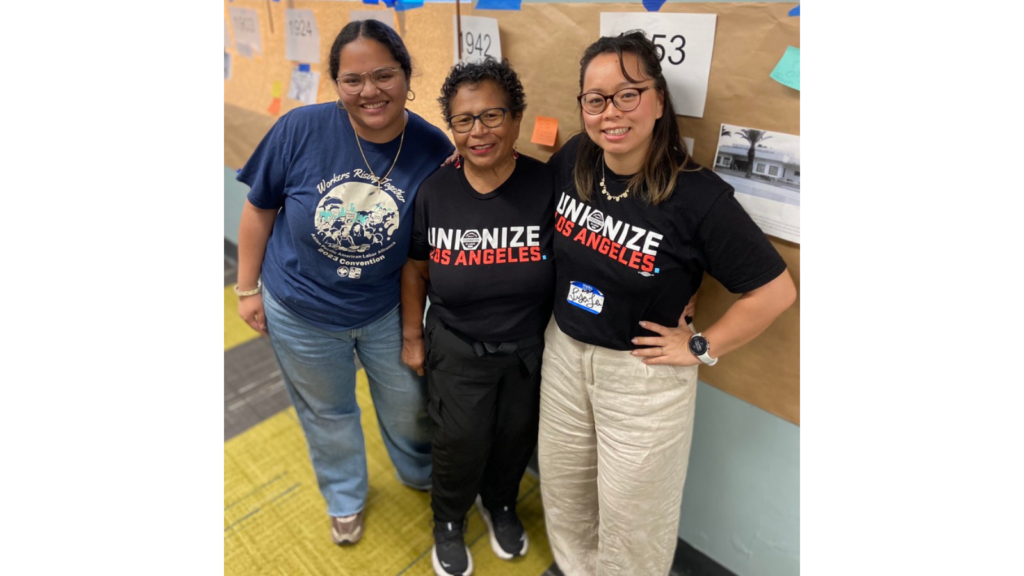
- Mary Entoma, Co-President, APALA Los Angeles: “I was interested in joining APALA because I was the only API in the [labor organizing] spaces I was in. I wanted to fight for working poor people like me and my family, to protect migrant and immigrant workers. This organizing institute is exactly why I chose to be in the labor movement.”
Trainers’ Reflections: Building Worker Power Through Shared Experience
The APALA OI provides a unique space for seasoned and emerging organizers to develop essential skills for building worker power. Training fellows reflected on their experiences, highlighting the importance of collective learning and how these spaces inspire mutual growth. Their testimonials underscore the transformative impact of the institute on both trainers and participants.
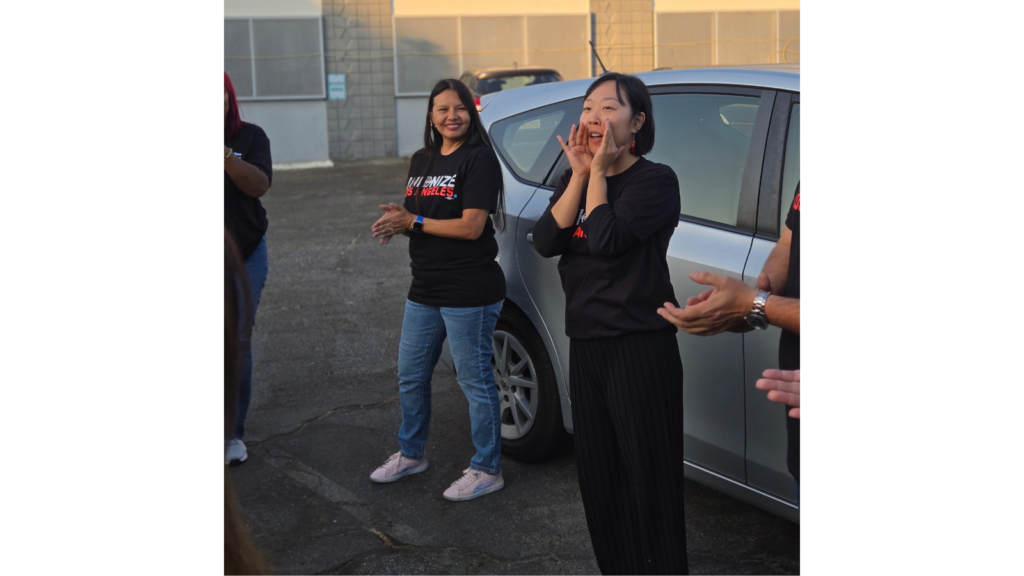
- Seo Yun Sun, Organizer, UPTE CWA 9119: “This weekend was so energizing because we were in a room full of participants from various organizations, from labor, from community who came to learn the basic principles of union organizing. This was a great opportunity for me as a previous participant from this organizing institute to come back as a teaching fellow and share my experiences with campaigns that we’ve won and lost out on the field. It was also a great opportunity for me to learn from our participants.”

- Nanette Garces, External Organizer, SEIU 121RN: “I was attracted to APALA because it involves different workers from different unions. This is my second training at the House of Labor and this time I’m on the other side, doing the training with [APALA and AARJ].”
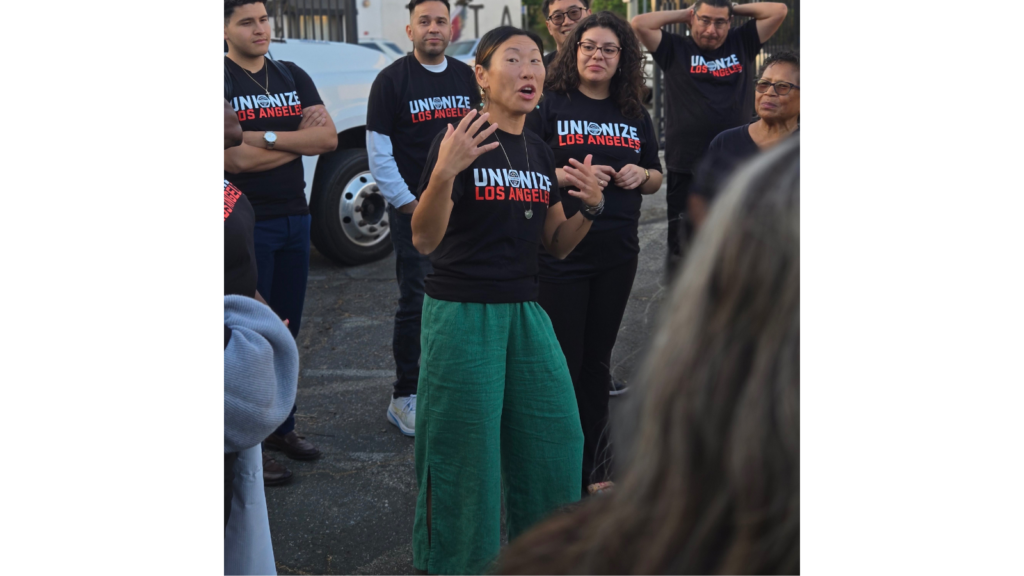
- Mindy Chen, Faculty Director, Dolores Huerta Labor Institute (DHLI) at the Los Angeles Community College District (LACCD): “APALA OI is like coming home. I was an organizer some 20 years ago. Time and time again, the organizing institute has been a place to re-hone my skills, to share my skills and stories with others, [and] to ground myself in a place that’s safe, that’s encouraging, and empowering.”
Learning and Connecting: Trainees’ Reflections on Organizing Together
Participants also expressed that the experience not only sharpened their skills as organizers but strengthened their connections to their unions and the broader labor movement through learning in community with other API worker leaders.
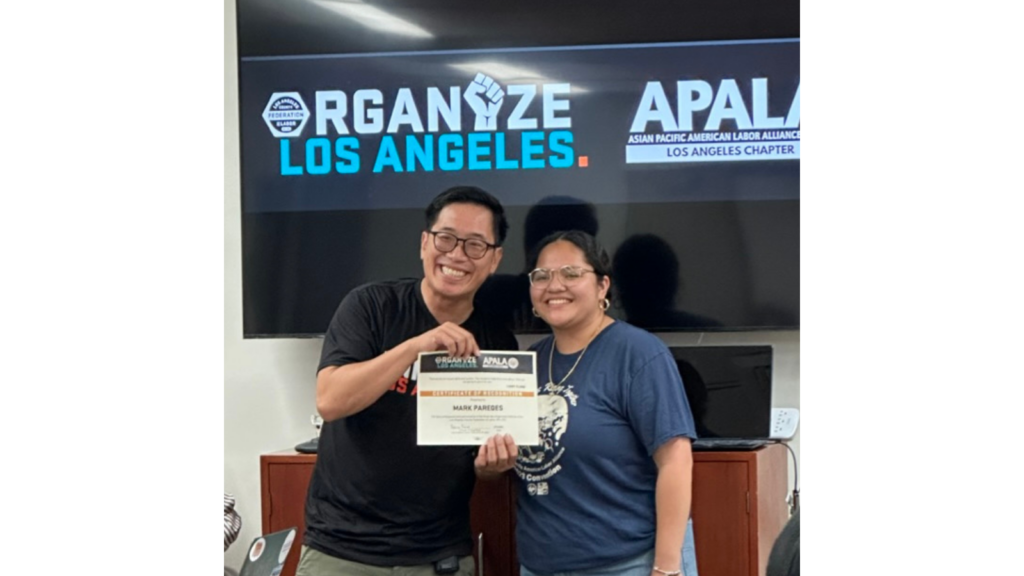
- Mark Paredes, Regional Manager, UDW AFSCME Local 3930: “[The OI] has really given me the foundation to be able to connect with the community. It’s given me the tools to be able to engage members in a much deeper conversation … so that we can not only get to know them but grow them as leaders.”
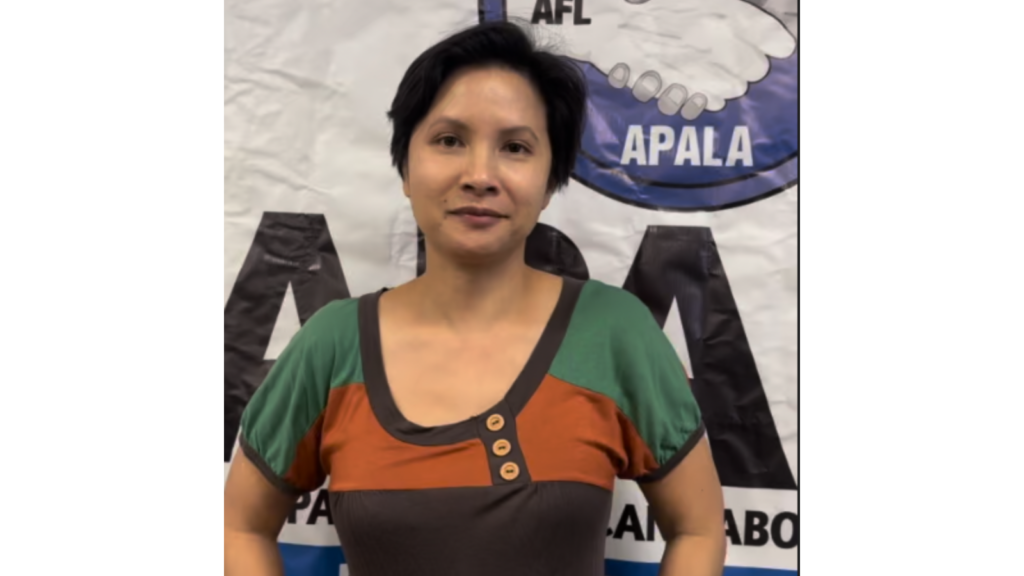
- Caroline Do, Program Lead, UDW AFSCME Local 3930 Resource Center: “It’s a great array of very passionate people who are fighting for workers’ rights … really giving us the tools and structure for how to approach [workers] and communicate effectively. [The OI] made me feel more empowered rather than overwhelmed.”
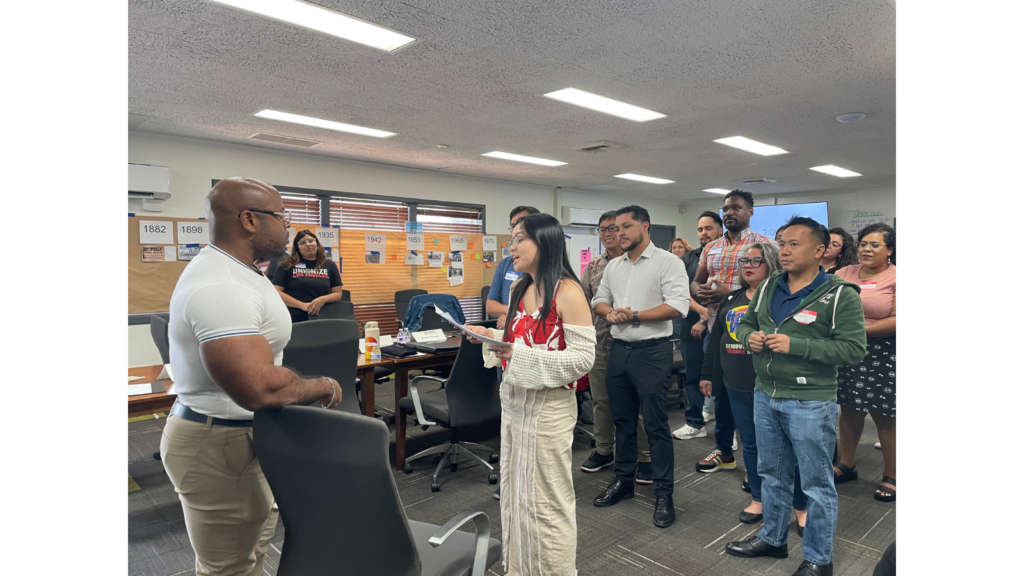
- Stella Linardi, Student, UCLA School of Law: “At the APALA OI, I had an amazing experience. I got to demonstrate worker power and train to be a better organizer and union member with my friends and colleagues.”
About the Asian American Racial Justice Project
The Asian American Racial Justice Project at the UCLA Labor Center centers and amplifies the voices of our API communities and generates collaborative efforts to rectify the violence that harms us ideologically, institutionally, interpersonally, and internally. While we, as a community, have suffered a history of colonization, anti-Asian violence, and erasure, we also carry a vibrant legacy of resilience, victory, and love. We work in collaboration with unions and community organizations to uplift immigrant youth, develop API union leadership, and coordinate organizing and educational programs that intersect race and worker power. Join the AARJ email listserv to get updates and invites to our next events.
